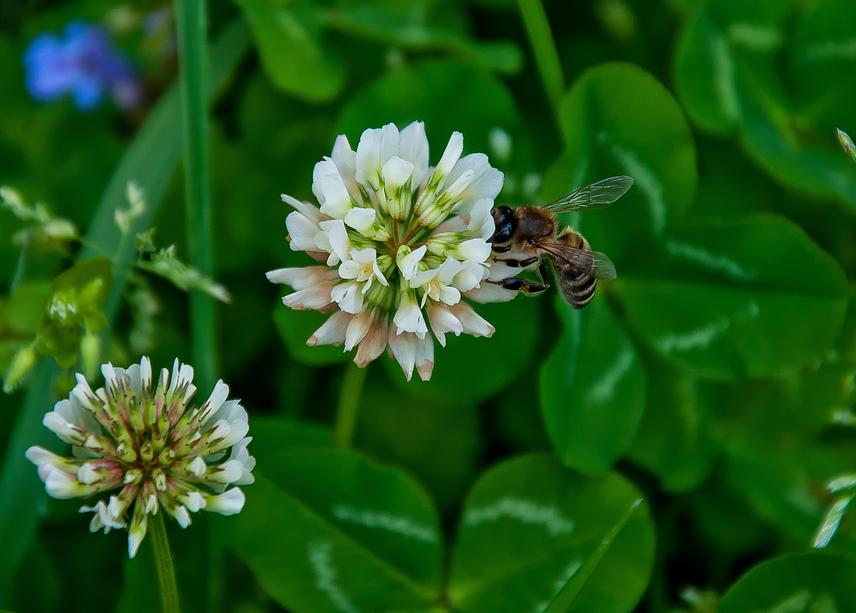Irakli Janashia
The project aims at raising awareness about endemic honeybees in Georgia and ensuring initiation of appropriate protective measures in the near future.

Clover polination.
Georgia is the only homeland of unique honeybee subspecies -Apis mellifera caucasica, whose recognition is limited by insufficient scientific description. Moreover, Georgian honeybees are weakly protected from expected threats endangering the breed.
Unfortunately, worldwide, as common pattern including Georgia, industrial beekeepers are tempted to import non-native bees. The non-existent policy that would regulate the issue appears to be the secondary while the problem is of equal importance.
Carrying out the project we plan to take up the three major challenges:
lack of awareness among beekeeping stakeholders about the value of endemic honeybees;
aloof attitude of policymakers and relevant governmental institutions;
deficient information in a group of scientific society about the current state of Apis mellifera caucasica in its natural habitat.
Our team aims to overcome the listed obstacles through the networking, promoting some activities among local bee breeders, concerned governmental and non-governmental institutions and by getting international scientific community involved.
The central concept will rely on providing information by means of seminars and popular publications about the importance of local honeybee protection. The seminars will be organized for local bee breeders and other stakeholders. During meetings the proved theory - that local bees compared to the non-local ones exhibit higher vitality - will be promoted. We will explain the relevance of using local populations of bees for breeding and its importance for sustainable beekeeping too.
The above mentioned seminars will be organized in seven regions where beekeeping is presented in larger scale: Samegrelo, Imereti, Adjara, Guria, Svaneti, Kartli and Kakheti. Local beekeepers (mainly honeybee breeders) will be invited and importance of preservation of endemic honeybee populations will be the key discussion topic.
The second target group, which we aim to inform about our project, will be the Ministry of Agriculture and the Ministry of Environmental Protection of Georgia. We thereby aim at revising their knowledge in regard to Georgian endemic honeybee population’s state. This will ensure that they will reconsider the current attitude toward native bees and initiate new regulations.
The third target group – international scientific society will be notified via scientific publication describing history of Apis mellifera caucasica research and current state.
We are going to collect honeybee samples from the remote mountainous villages where stationary apiaries are protected from the impact of migratory beekeeping. The samples will be used for morphometric studies and part of them will be sent for further genetic investigations.